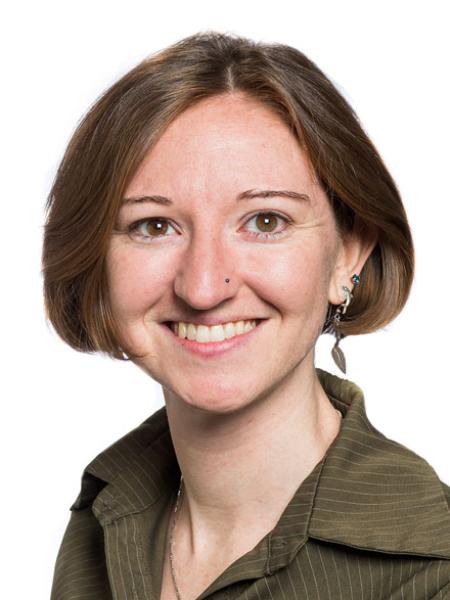Associate Professor Catherine Frieman
Catherine Frieman is a senior lecturer in European archaeology in the School of Archaeology and Anthropology. Her primary research interests include innovation and conservatism, and she is a material culture and technology specialist with a particular specialism in stone tools.
She has ongoing fieldwork in the UK, is Lead CI of an ARC Discovery project looking into human mobility and the diffusion of innovations in prehistoric Iberia and the Pacific and she has also worked on lithic material and technology from Neolithic sites in Vietnam.
Alongside her research, Catherine is a passionate teacher and her contributions to education at the ANU have been recognised by teaching excellence awards from CASS, the Vice-Chancellor's Award for Teaching Excellence (Early Career), and the Office for Learning and Teaching Australian Award for University Teaching (Early Career).
Q&A
Q: How do you plan to use your appointment as a Distinguished Educator?
My big goal for my time as a Distinguished Educator is to help build more interdisciplinary bridges between the great teachers and teaching departments around ANU. I'm at a pretty early stage in my career and because of that I rarely have the opportunity to work with colleagues across the university. The Distinguished Educators, however, are drawn from across the ANU and I'm excited to be able to spend time talking about teaching and cross-pollinating ideas on quite a high level. There's so much excellent educating happening at ANU, but our departmental and college silos make sharing and communicating what's worked and what hasn't quite challenging. Hopefully I can help build more stable and open channels of communication and collaboration.
Q: What motivates and inspires you in your teaching?
I deeply believe that being a teacher is an ethical imperative of research. Teaching is both communication and activism in that it disseminates new ideas and tests them in a wider, often non-specialist audience but it also has the potential to change the way our individual students see and engage with the world they live in. What drives me in my research - curiosity, a desire to solve problems, a genuine interest in how people arranged the world around them at different times and places, and (I'll be honest) a certain amount of contrariness - also drives my teaching. I like looking at the assumptions we make about people, technology, practices and society from a lot of different angles and testing why some ideas are 'common sense' while others are 'too out there'. I do this in my classes too - a lot of my teaching is centred around questioning common sense assumptions and asking 'but what if...?'
Q: Tell us about an approach you have taken in the classroom of which you've been proud.
My favourite class to teach is my undergrad archaeological theory seminar. ANU archaeology has not previously taught much theory, so when I arrived in 2012 I had more or less free range to do what I wanted. I decided to try and develop an American-style intensive discussion class of the sort that I loved when I was an undergraduate student at a US university. The challenge was that the discussion and the introduction of new material had to happen in the same class. I set up a teaching format we've been calling 'lectorials' in my department which are a bit like the flipped classrooms used in problem-based learning. Our seminars are 3 hours long, I talk about the background of the week's concept for about 50 minutes then we spend the rest of the class talking through the ideas in the reading. My students develop the discussion questions and I step back and let them come to consensus in small groups before facilitating their conversation. Student-led teaching can be quite frustrating, but it's also incredibly rewarding and I know my students really value the skills and confidence they develop in this class.
Q: If the VC asked you how you would change teaching and learning at ANU, what would you say?
My big pie-in-the-sky wish is that we should stop letting financial considerations govern our teaching decisions. We need a vision of excellence that is widely disseminated and incentivised and which sits adjacent to the economics of university teaching rather than being shaped by them. At the moment, concerns about EFTSLs (numbers of 'bums on seats' for the uninitiated) mean that it's hard to take risks and to teach smaller courses; and differences in financial support across the university result in different amounts of tutorial and marking support in different colleges, with little clear discussion of how to mitigate for these differences. The result is that when we plan our courses, we often find ourselves thinking not just 'would this creative assessment best help my students grapple with these ideas?' but also 'if I get 60 students and it's not enough to afford marking support will I be able to mark all those exciting, creative assessments?' Without a muscular and widely disseminated series of principles for excellent teaching, these smaller, more mundane and non-pedagogical concerns will continue to crop up and strangle innovation.
